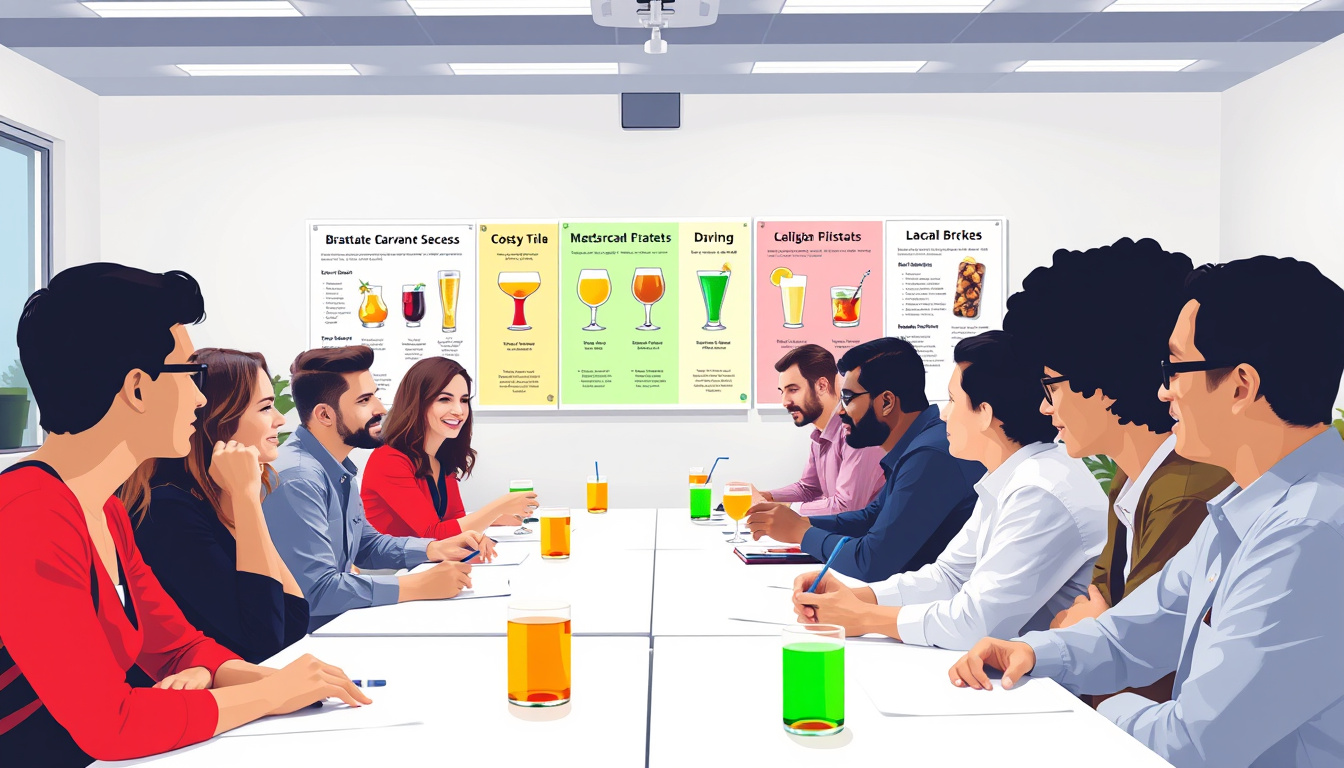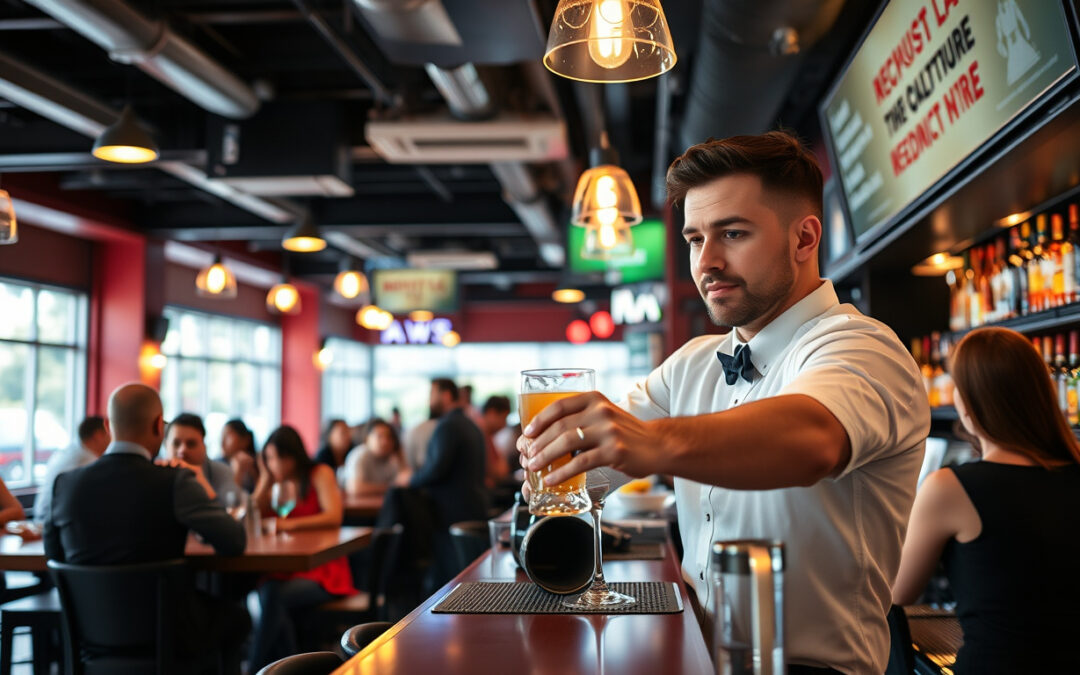In the hospitality industry, safety and patron care come first. Staff learn safe alcohol service by training. This training gives them clear skills and useful knowledge. It helps lower risk, follows the law, and builds a friendly space for guests and staff alike. In this article, we look at why training for responsible beverage service matters and how it makes a safer hospitality setting.
Why Responsible Beverage Service Training Matters
Training in responsible beverage service teaches staff—the bartenders, servers, and managers—exactly what to do when serving alcohol. It covers the risks tied to alcohol, state rules, and ways to lower harm. Alcohol misuse can lead to accidents, poor health, and fights. Thus, knowing the correct service methods is key to protecting customers.
By using responsible beverage service training programs, hospitality venues can:
- Cut down on over-serving customers
- Stop underage drinking
- Lower alcohol-related accidents and fights
- Reduce legal risks
- Boost customer experience and reputation
Studies show that places with certified workers face fewer alcohol-related problems. This proves that good training has a positive impact on community safety and business success.
Key Components of Responsible Beverage Service Training
A solid responsible beverage service training program builds its strength on several clear ideas. These key parts include:
1. Understanding Alcohol Laws and Regulations
Every area has its own rules. These rules cover legal drinking ages, sale hours, and penalties for bad behavior. Training makes sure staff know these rules well. That helps them to follow the law and keep the license safe.
2. Recognizing Signs of Intoxication
Workers need to see the clues of intoxication. Signs include slurred speech, clumsy movements, or angry behavior. Early detection lets them step in to stop too much alcohol from being served.
3. Techniques for Refusing Service
It can be hard to say no. Yet, staff must refuse service when a guest has had enough or is too young. Training gives clear words and actions to say no in a calm and firm way.
4. Checking IDs Effectively
Stopping underage drinking is a must. Staff learn to check real IDs and spot fake ones. They even practice with electronic scanners when these tools are available. This check helps serve only legal drinkers.
5. Managing Difficult Situations
Sometimes conflict or stress appears as a result of alcohol misuse. The training shows how to calm situations and when to call security or the police. Clear steps keep everyone safe.
6. Promoting Alternative Beverage Options
Offering non-alcoholic drinks or food keeps guests from drinking too much. Training stresses that alternatives help pace alcohol service and lower risks.
Implementing a Successful Responsible Beverage Service Training Program
To get the best out of training, venues can follow these steps:
Step 1: Choose Accredited Training Providers
Pick training that is respected and meets local rules. Many groups, such as the Alcohol and Gaming Commission or local hospitality associations, offer both online and face-to-face courses.
Step 2: Train All Relevant Staff
Everyone involved in service—from bartenders to floor managers—must get the same training. This way, all staff share the same clear methods.
Step 3: Integrate Training Into Onboarding
New hires learn the rules from day one. Responsible beverage service training joins the onboarding process. This means all employees start with the same correct information.
Step 4: Conduct Refresher Courses Regularly
Laws and best practices can change. Regular updates in training help staff stay current and keep a culture of care and responsibility.
Step 5: Monitor Compliance and Provide Feedback
Managers watch how service is given. They then offer simple, clear feedback and praise employees who do things right.
Benefits Beyond Compliance
Following the law is important, but training brings extra gains:
- It builds trust with customers who see careful, clear service.
- It reduces the chance of legal problems.
- It makes workers feel strong and prepared.
- It lifts the overall reputation of the business.
Best Practices for Maintaining a Safe Hospitality Environment
Training is only one part of a wider safety plan. Other ways to enhance safety include:
- Use clear alcohol policies and display them well.
- Have adequate security during busy times.
- Serve measured drinks to control portions.
- Offer food along with alcoholic drinks.
- Encourage safe drinking with smart marketing and events.
Common Challenges and How to Overcome Them
Even good training can face some bumps:
Resistance from Staff
Some workers may see saying no as unfriendly or worry about losing tips. Employers can share the value of safe service and use role play to boost skills.
Keeping Training Engaging
Classes may feel dry. Add interactive parts like quizzes and real-life stories to keep attention and help with recall.
Staying Current With Laws
Alcohol regulations can change fast. Designate a staff member to follow updates or join a regulatory newsletter to stay informed.
FAQs: Responsible Beverage Service Training Insights
Q1: What is the main aim of responsible beverage service training?
A1: The training teaches staff to follow the law and handle alcohol safely, so that misuse and harm are reduced.
Q2: How long does responsible beverage service training usually last?
A2: It usually lasts 2 to 8 hours and many courses offer flexible timings to suit different schedules.
Q3: Can responsible beverage service training lower legal risks?
A3: Yes, trained staff help ensure law compliance and manage intoxicated guests well, which in turn lowers legal risks.
Conclusion
Responsible beverage service training is an essential guide for any hospitality setting that wants to stay safe and offer great guest experiences. Teaching the right laws, how to spot intoxication, and how to say no clearly makes a safer service possible. Including this training when hiring and during regular updates builds confidence and ensures continued compliance. Ultimately, it helps both the guests and the wider community by encouraging smart alcohol service practices.

For more details on building and using effective beverage service training, visit the National Restaurant Association’s Serve Safe Alcohol program for trusted advice and tools.


